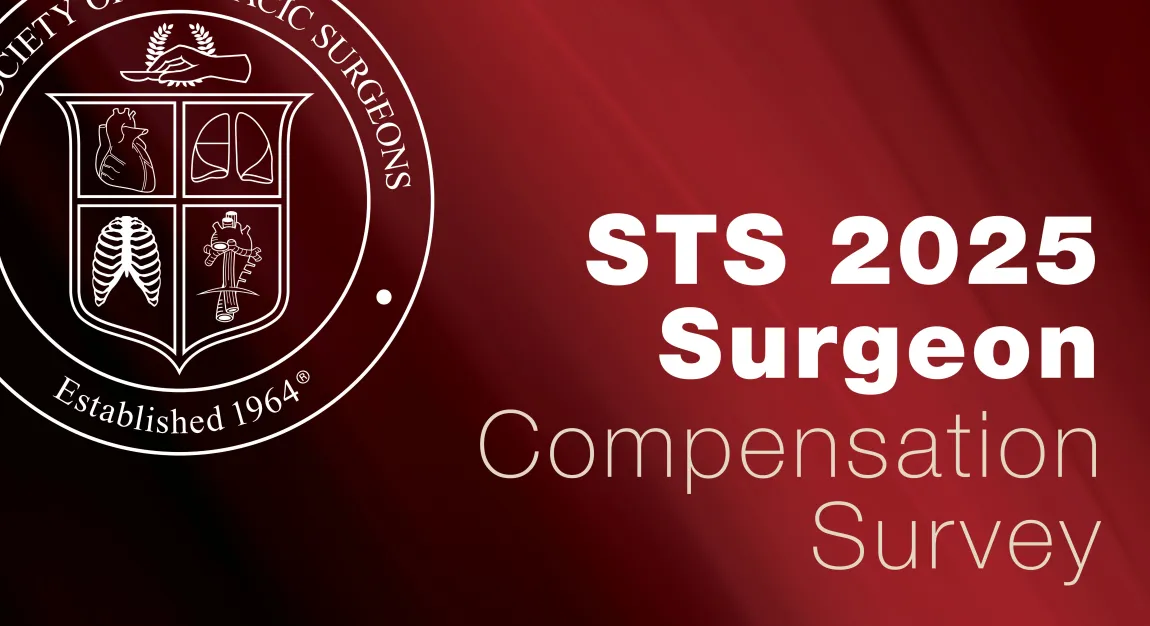Cardiothoracic surgeons provide tremendous value to the patients and institutions they serve. But understanding that value, and translating it into fair compensation, has always been a challenge. Until now. For the third year, STS has undertaken a surgeon compensation survey to help U.S.-based CT surgeons understand their value in the market specific to specialty, practice, career stage, and geography. It is the only compensation survey that comprehensively captures the many nuances of the cardiothoracic surgery specialty. STS Members who completed the survey have received a complimentary copy of the report. (Survey respondents receive a copy free of charge—log into the STS Learning Center with your website credentials to access the report and click the "Enroll" link above the product image.)
The 2025 report, available for purchase, captures the many compensation nuances of the specialty, including subspecialty, career stage, gender, ethnicity, geographic location, service area, and employment model. STS members receive a discount!
Pricing
| STS Members | Non-Members | |
|---|---|---|
| Individual: Surgeons/Physicians | $750 | $2,500 |
| Individual: Residents, Fellows, and Medical Students | $100 | $250 |
| Institutions | $7,500 | |
